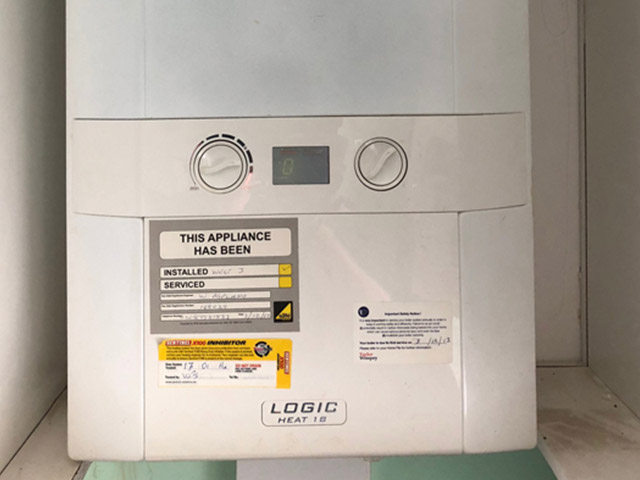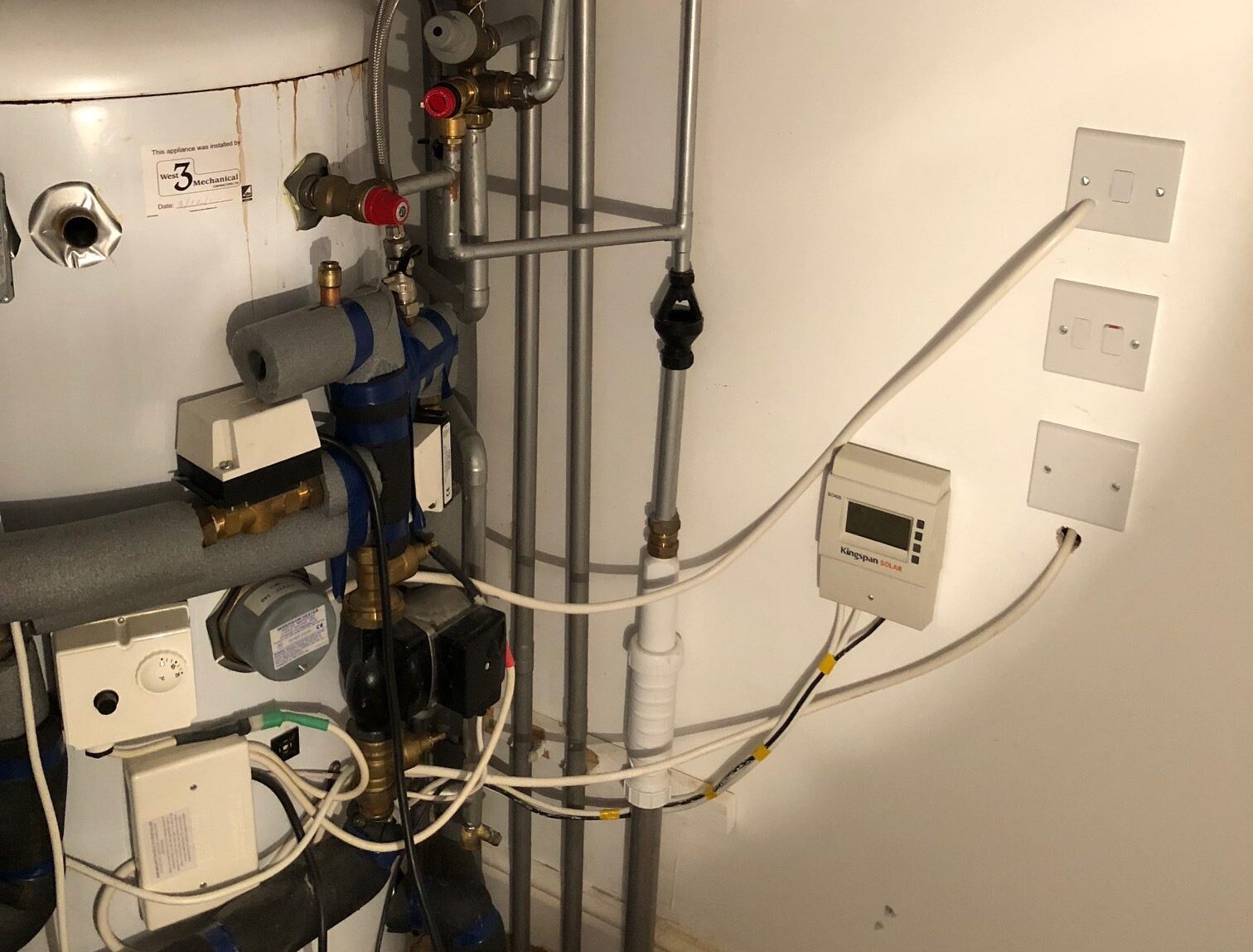
We specialize in servicing central heating systems, regardless of the boiler brand you have.
Our skilled team works on both your heating system pipework and boiler to ensure everything is running smoothly.
Sit back, relax, and let us take care of your heating system. We'll make sure it's in top shape, no matter the brand of your boiler.

All our engineers are highly skilled plumbing and heating experts, with extensive experience in the field. They are equipped with cutting-edge leak detection technology and have undergone comprehensive training to stay at the top of their game.
Our ultimate objective is to locate and fix any leaks you may have, ensuring your complete satisfaction.

Our brilliant engineers employ a range of cutting-edge leak detection technologies to precisely identify the exact spot of your leak - all without the need to tear apart your floors!
Boiler pressure is like the life force of your hot water system. It’s what makes your boiler work its magic, heating up water and sending it on a journey through your home’s pipes to warm up your radiators and hot taps. But here’s the catch – you need to maintain the right level of pressure to ensure that this hot water reaches every nook and cranny, doing its job perfectly.
Now, if your boiler pressure decides to go all high and mighty, there might be a bit too much water in the system. And guess what happens then? Your poor boiler gets overloaded and throws in the towel, leaving you in the cold. But fear not, there’s a nifty trick to tackle this situation – bleed your radiators. By doing so, you release some of that built-up pressure, giving your boiler a chance to breathe again.
On the flip side, if your boiler pressure decides to take a nosedive and go low, it’s a sign that there might be a sneaky leak somewhere in the system. That means you’re losing precious water and, as a result, losing pressure. Not cool, right?
Now, here’s the thing about boiler pressure – it’s a bit of a rollercoaster ride. As you use your central heating and it heats up the water, the pressure will naturally go up. But don’t fret, once you switch off the heating and the water starts to cool down, the pressure should settle back to a stable level. Ideally, that sweet spot should be between 1 and 2 bars, which you can easily check on your boiler’s pressure dial or digital screen. During heating or hot water usage, it might spike up to 2.5 bars, but it should return to that 1-2 bar range once things cool off. If it goes beyond that range, well, Houston, we have a problem.
So, keep an eye on that boiler pressure, my friend. It’s the key to a cozy and well-heated home.
Although a leak is the most common reason for a boiler to lose pressure, there are a few other factors to consider. For example, if you’ve recently bled your radiators, you might have let too much air escape, resulting in decreased pressure in your central heating system. Don’t worry though, you can easily fix this by adding more water into the system through the filling loop until the pressure returns to normal.
In addition to leaks, there could also be faulty components inside your boiler, such as a faulty pressure relief valve. Alternatively, your boiler might simply be old and worn out, indicating the need for a replacement. It’s important to keep these possibilities in mind when troubleshooting pressure issues.

Are you worried about your boiler pressure being low? Don’t fret! I’m here to help you out. The first step is to locate the pressure gauge on your boiler. Now, for most modern boilers, like the combi boiler, you’ll usually find the pressure gauge as a round dial on the front of your boiler or control panel. But hey, if you’ve got an older boiler, the gauge might be hiding underneath or among the pipework. Sneaky little thing, isn’t it?
Alright, now let’s talk about the ideal pressure. Your pressure gauge should be reading between 1-2 bars, and you can usually find the ideal pressure marked on the gauge itself. It’s often color-coded with green indicating the sweet spot and red telling you if the pressure is too low or too high. Some fancy boilers even have a digital screen that shows you the exact number of bars and even throws in an error code if things aren’t looking too good.
So, there you have it! Checking your boiler pressure is no longer a mystery. With these tips, you’ll be able to keep an eye on it and make sure everything is running smoothly. Stay warm and cozy!

If your boiler has a cool digital display that shows the bar level, it can be pretty handy. It can actually give you fault codes if something’s not right in the system, like low pressure. These codes can be super helpful in figuring out the issue before it turns into a major headache. But here’s the thing, these codes are different for every make and model of boiler. So, if you see a fault code, it’s always a good idea to consult your boiler’s manual. It’ll tell you what that code means for your specific boiler. And if you’re wondering, here are the most common fault codes for the top UK boiler manufacturers that indicate a drop in pressure.

We totally get it – you’re probably worried about the cost of detecting and fixing your leak. But guess what? Most people don’t know that finding and exposing the leak is usually covered by your home insurance policy. Yup, you heard right! You’ll usually only have to pay a small amount for the repair once your insurance claims are sorted.
Now, here’s the deal. Look for the section in your policy called “Trace & Access” or something similar. If you have that, your home insurance company should reimburse you for the cost of our services. And don’t worry, we’ve got your back! We’ll provide you with a super detailed report that you can use for your insurance claims.
So, breathe easy and let us take care of your leak. We’ll make sure it’s all sorted without breaking the bank. You can count on us!
If your boiler takes longer than 24 hours to lose pressure, it’s possible that the leak is too small to locate. Let’s break it down: if you have a 12 radiator system and your boiler loses all its pressure in a day, it’s likely losing around 500ml each time the pressure drops from 1.5 bar to zero.
If we divide that 500ml over a 24-hour period, we find that the leak rate is about 20.83ml per hour. Taking it even further, if we divide the 20.83 by 60 minutes, we get a leak rate of 0.347ml per minute!
To put it in perspective, this is just 1/3 of a ml of water lost every minute. It’s like losing less than a single droplet of water in a minute.
At this rate, we should be able to find the leak (assuming the floors are solid). However, if the floors are suspended, the boiler would need to lose all its pressure twice within 24 hours, meaning once every 12 hours.
We ask these questions not because we don’t want to help you, but because we want to ensure that we’re not attempting the impossible and wasting your time and money. If we don’t believe the leak can be found due to its small size, we’d rather inform you beforehand instead of charging you for a day’s work. We want you to save your money!
We serve the whole of Bracknell, Berkshire including all villages in the area.
Privacy Policy | Terms & Conditions | Sitemap | Registered Office Address: 128 City Road, London, United Kingdom, EC1V 2NX